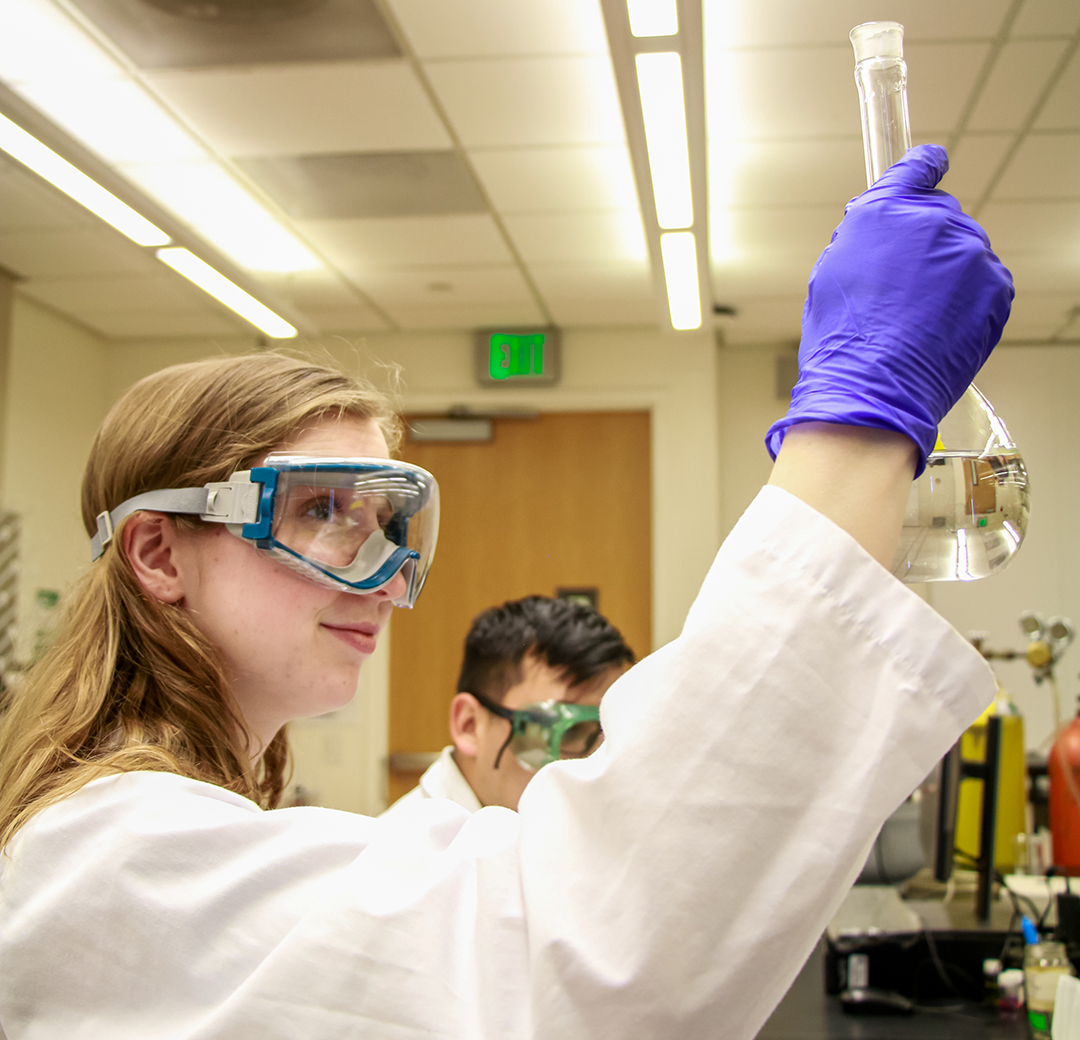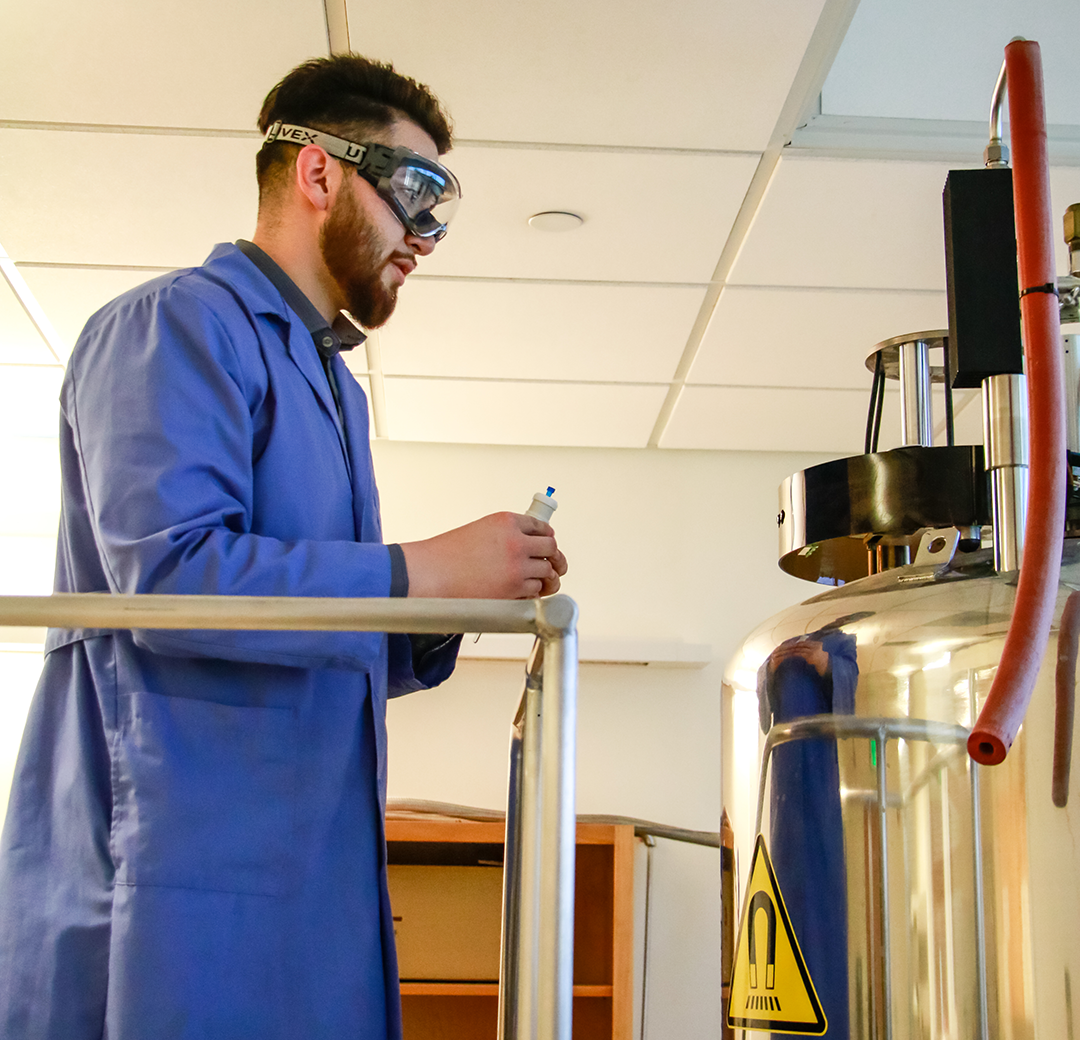

An undergraduate degree is sufficient for entry-level positions such as lab technician/coordinator, research assistant, product testing or analysis, technical sales or service representatives. If you maintain a high-grade point average, you can secure a strong recommendation for graduate school admissions for a Masters or Ph.D. degree. As an undergraduate student in chemistry at Stan State, you will develop strong laboratory, computer, mathematics, and science skills and knowledge. You will have the opportunity to apply for part-time, volunteer, internship and research opportunities with professors to gain relevant experience. You will be able to develop contacts at government laboratories, research organizations/universities or in industry, and to learn about specific career paths. You will also learn how to read scientific journals to stay current on relevant issues in the field, you will be able to join related student and professional organizations, and to attend scientific conferences and meetings.
What can I do with a chemistry degree?

Science is all around us and chemistry is an integral part of our daily lives. Chemical processes underlie all our routine daily activities, from the chemical breakdown of an apple providing the body with energy to function to global issues such as climate change and the development of alternative forms of energy. Knowing the science behind an issue helps us to make informed decisions. As a chemist, you’ll have the opportunity to work in government agencies, commercial labs, private research and manufacturing industries, consulting firms, technology and instrumentation companies, or educational arenas. Chemistry has many subfields:
- Analytical Chemistry: focuses on determining the composition and structure of matter and has applications to all areas of chemistry.
- Biochemistry: references the study of chemical properties within living systems.
- Chemical Engineering: combines chemistry and engineering to solve problems involving the use or production of chemicals.
- Geochemistry: study of the liquids, gases and minerals deposits of rock to guide scientific and industrial applications.
- Inorganic Chemistry: addresses the behaviors of inorganic and organometallic compounds and how these materials can be modified for product applications.
- Materials Chemistry: focuses on the development of new materials and the improvement of existing ones.
- Organic Chemistry: study of the structure, properties and reactions of natural and synthetic carbon-containing compounds to create uses for existing or new materials.
- Physical Chemistry: a broad, interdisciplinary field applying techniques and theories from physics to study chemical systems.
- Polymer Chemistry: interdisciplinary field in which molecular structures are modified by chemical processes to develop a material’s functionality.
- Chemical Education: educational research to impart chemistry knowledge to students in public and private schools (K-12), medical and other professional schools, and universities and colleges.
Other professional opportunities with your chemistry degree are:
- Healthcare: attend medical school or other related graduate program (e.g. Medicine, Dentistry, Optometry, Pharmacy, Veterinary Medicine, etc.)
- Sales, Marketing, Technical Writing, Scientific Journalism, Scientific Illustration, Intellectual Property/patent Law, And Informational Specialist: work for medical/pharmaceutical companies, publishing firms, software firms, obtain an MBA or pursue a J.D., etc.

Updated: July 11, 2023